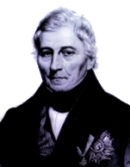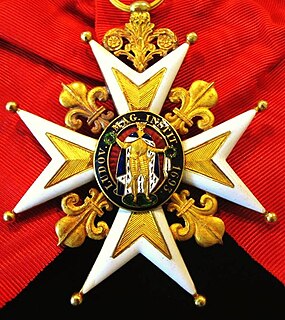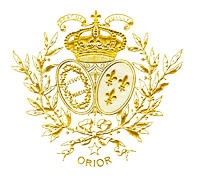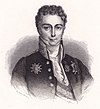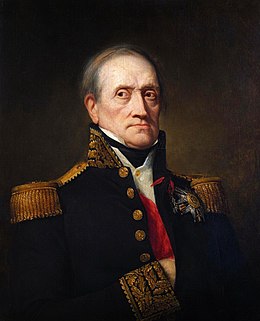
Marshal General Jean-de-Dieu Soult, 1st Duke of Dalmatia, was a French general and statesman, named Marshal of the Empire in 1804 and often called Marshal Soult. Soult was one of only six officers in French history to receive the distinction of Marshal General of France. The Duke also served three times as President of the Council of Ministers, or Prime Minister of France.

Laurent de Gouvion Saint-Cyr, 1st Marquis of Gouvion-Saint-Cyr was a French commander in the French Revolutionary and Napoleonic Wars who rose to Marshal of France and Marquis.
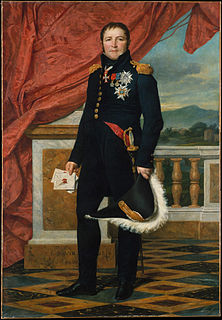
Étienne Maurice Gérard, 1er Comte Gérard was a French general, statesman and Marshal of France. He served under a succession of French governments including the ancien regime monarchy, the Revolutionary governments, the Restorations, the July Monarchy, the First and Second Republics, and the First Empire, becoming Prime Minister briefly in 1834.

Jean-Joseph Paul Augustin, 1er Marquis Dessolles was a French soldier and statesman. He was the Prime Minister of France from 29 December 1818 to 18 November 1819.
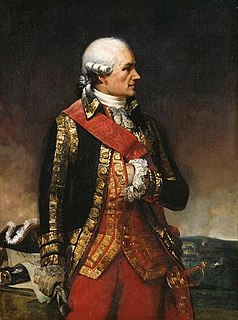
The Army of the North or Armée du Nord is a name given to several historical units of the French Army. The first was one of the French Revolutionary Armies that fought with distinction against the First Coalition from 1792 to 1795. Others existed during the Peninsular War, the Hundred Days and the Franco-Prussian War.

General Amédée Louis de Cubières, known as Despans-Cubières, was a French general and politician.

Jean-Baptiste Billot was a French general and politician.
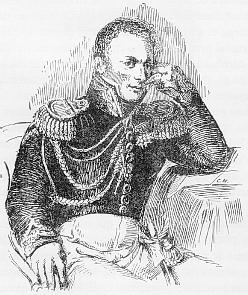
Camille Alphonse Trézel was a French général de division, Minister for War and peer of France during the July Monarchy. He was the assistant chief of the general staff on the Morea expedition, and served in the 1830s in the French conquest of Algeria, where he suffered a disastrous defeat at the Battle of Macta.
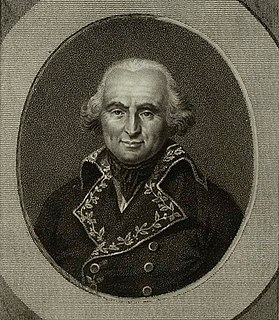
Pierre Marie Barthélemy Ferino,, was a general and politician of France. Born in the Savoy, he was the son of a low-ranking officer in the Habsburg military. In 1789, during the French Revolution, he went to France, where he received a commission in the French Army. In 1793, his troops deposed him, for his strict discipline, but he was immediately reinstated and rose rapidly through the ranks of the general staff. He helped to push the Austrians back to Bavaria in the 1796 summer campaign, and then covered Moreau's retreat to France later that year, defending the Rhine bridge at Hüningen until the last units had crossed to safety.
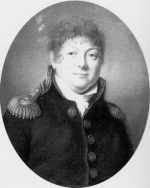
Jean Augustin Ernouf was a French general and colonial administrator of the Revolutionary and Napoleonic wars. He demonstrated moderate abilities as a combat commander; his real strength lay in his organizational and logistical talents. He held several posts as chief-of-staff and in military administration.
Alexander Elisabeth Michel vicomte Digeon, fought in the French Revolutionary Wars in the cavalry. He became a general officer during the Napoleonic Wars, fighting in a number of important battles. After 1814, he gave his loyalty to the Bourbon Restoration and briefly served as Minister of War.
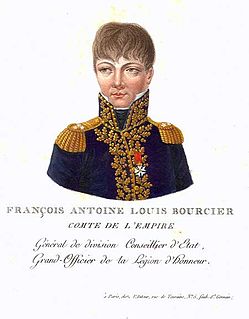
François Antoine Louis Bourcier was a French cavalry officer and divisional general of the French Revolutionary Wars and the Napoleonic Wars.

Jean Ambroise Baston de Lariboisière, also Count de Lariboisière, was a general of artillery of the First French Empire. He fought in the French Revolutionary Wars and the Napoleonic Wars and died of fatigue at Königsberg in East Prussia on 21 December 1812, during the Grand Army's retreat from Moscow.
Étienne d'Hastrel de Rivedoux was a general of the First French Empire who fought in the French Revolutionary Wars and the Napoleonic Wars. He was born 4 February 1766 at Pointe-aux-Trembles in Quebec, which was then the British colony, Province of Québec, the son of an officer in the French military. His father had served in India during the Seven Years' War, and later in Quebec.
François-Étienne de Damas was a French general.
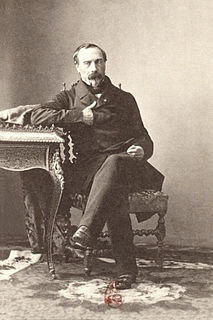
Charles-Marie-Esprit Espinasse was a French military officer who was briefly Minister of the Interior and Public Security in 1858. He died during the Italian campaign of 1859.

Jean-Chrysostôme Calès was a French military officer who served during the French Revolutionary Wars and the Napoleonic Wars. He was born on January 27, 1769 in Caraman (Haute-Garonne) and died on April 21, 1853 in Cessales (Haute-Garonne).
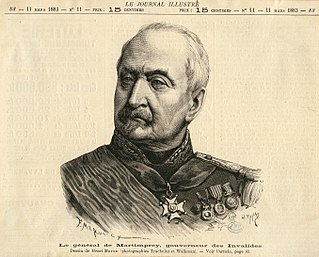
Count Edmond-Charles de Martimprey was a French soldier, briefly Governor General of Algeria, and then Senator of France for the remainder of the Second French Empire.
